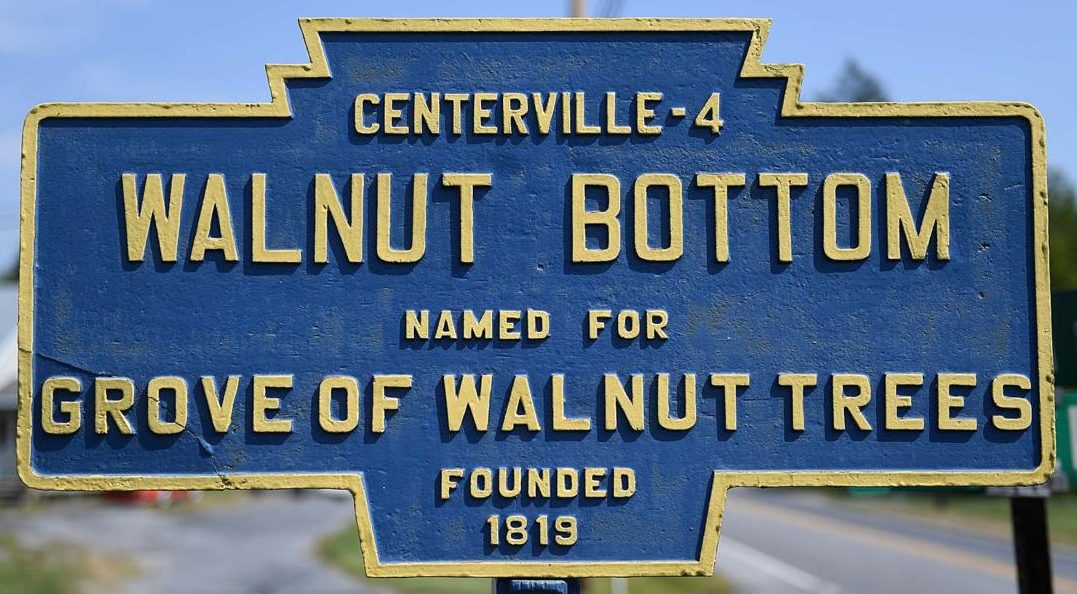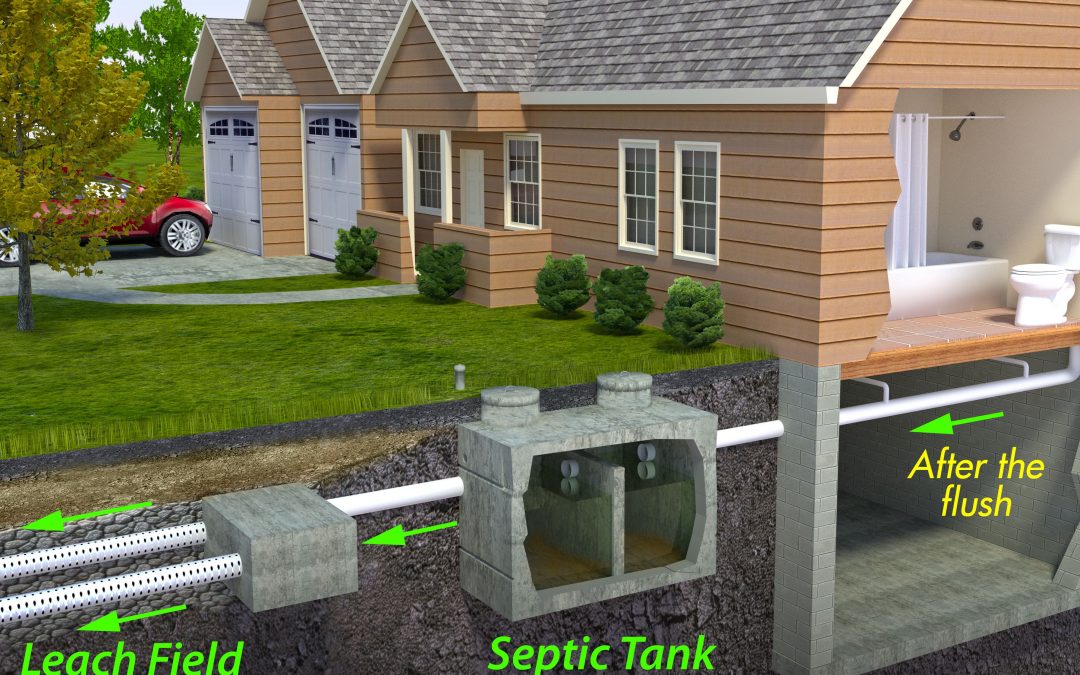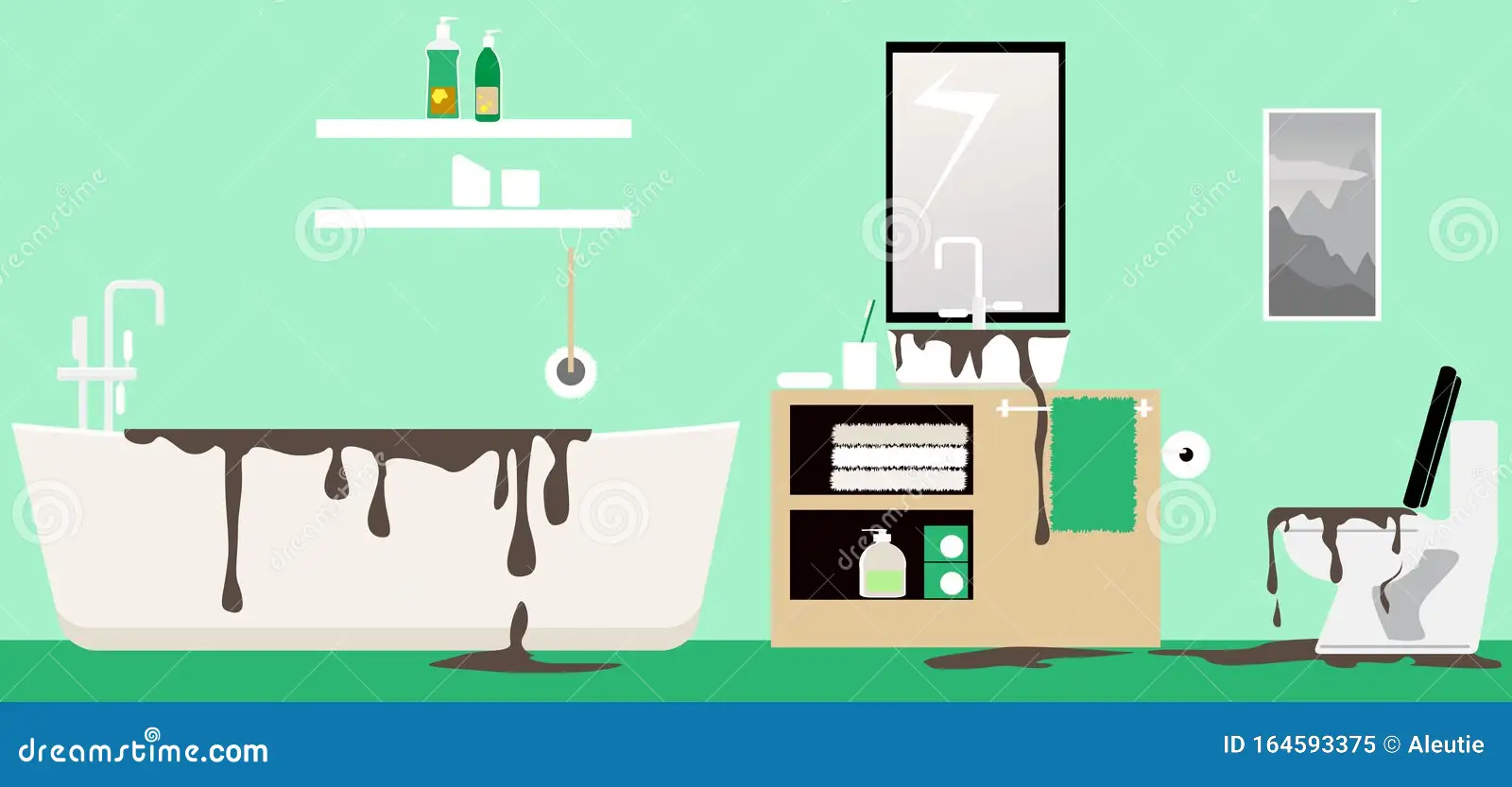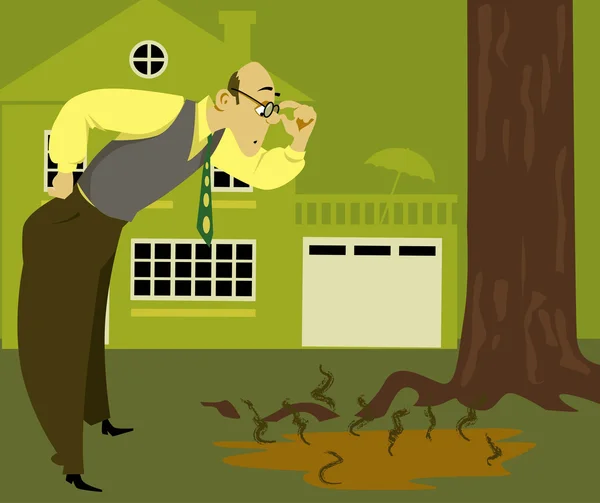South Newton Township does not offer public sewer. Your property is connected to an onlot sewage disposal system. Do you pump your septic tank on a regular basis? No?…Why Not? Would you change the oil in your car only when it starts running wrong? Well, your septic is no different. Over time, sludge in your septic tank builds up. If you don’t pump regularly, when the sludge has reached the top, where does it go? Yep…backed up in your house or up in your yard! YUCK! That’s why it is HIGHLY encouraged/recommended to have your septic tank pumped every 3 years or sooner to ensure proper operation and to save you on costly repairs (permit not required to have your septic tank pumped).
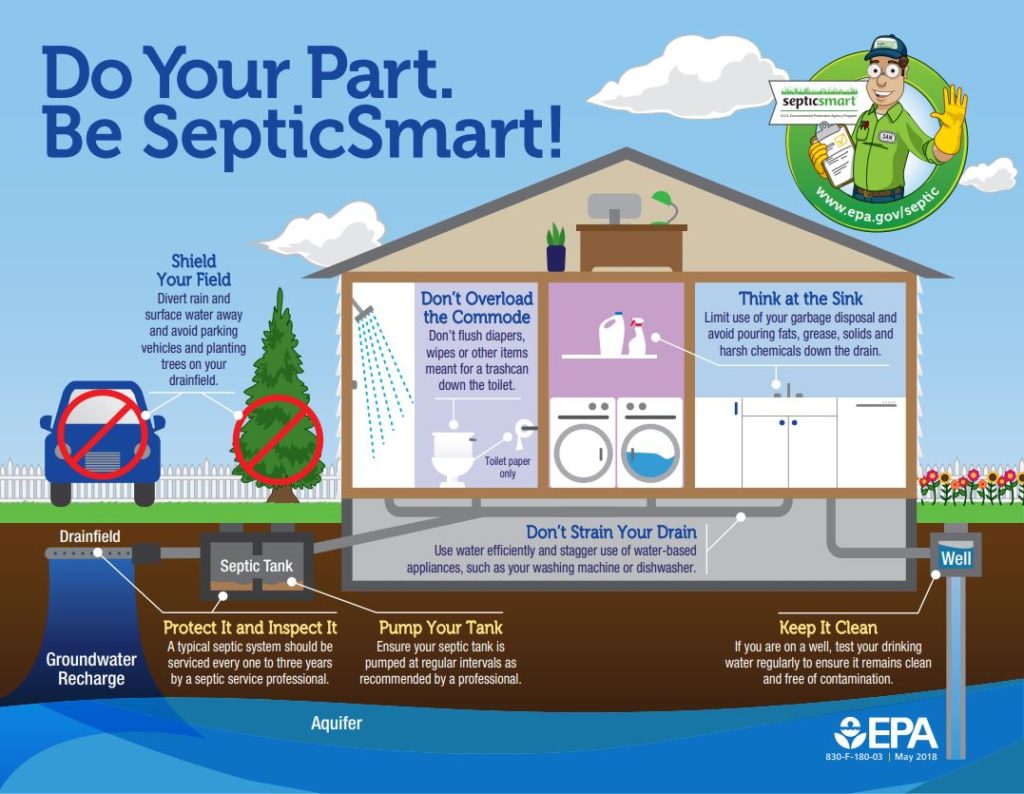
If you have questions or issues regarding your septic system, please contact our Sewage Enforcement Officer, Jon Piper, at 717-328-5769.
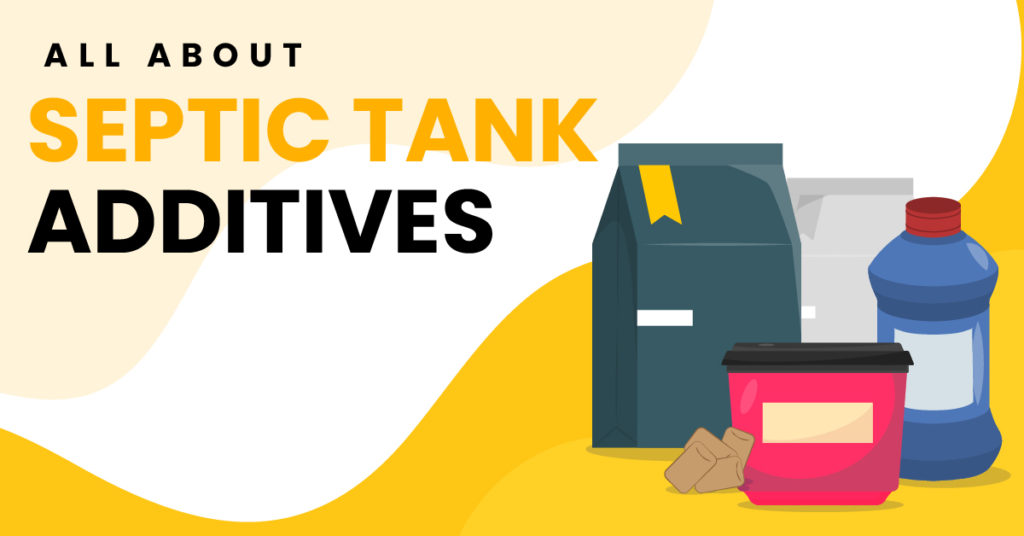
If you’re one of the over 21 million homes in the US that use a septic tank, you may have heard about septic tank additives and all the benefits they come with. But what are they, and do septic enzymes really work?
There are three types of septic tank additives:
- Inorganic compounds
- Organic solvents
- Biological additives
- They’re ingredients that won’t cause harm to the groundwater, human health, and the septic tank system.
Regardless of type, septic tank additives as a whole are designed to break down and digest the sludge, grease, waste, and other materials that can accumulate in septic tanks over time. Hypothetically, this can help reduce septic tank cleaning and maintenance, and it should help keep your septic tank functioning properly. However, this is just clever marketing—there’s no actual evidence that they’re effective or work at all. In fact, septic tank additives don’t actually serve any purpose. Even the EPA states that septic tank additives aren’t required for your tank to function properly. Unless you have a septic tank with an especially stubborn build-up, there is likely no need for septic tank additives whatsoever.
INORGANIC COMPOUNDS
Inorganic compound septic tank additives typically contain a mixture of strong alkalis or acids. These include acids like sulfuric acid or lye. These chemical mixtures are the same ones that you would find in drain de-cloggers and other commercial drain cleaners. These septic tank additives are designed to unclog the septic system’s pipes, but they’re not without their own drawbacks. For example, they can cause adverse effects on the decomposition process. They can also cause structural damage throughout the entire system. Other issues that may arise:
*Harming the beneficial bacteria that are key to the wastewater treatment process
*Reduce the septic tank system effectiveness
*Disrupt secondary treatment system effectiveness
ORGANIC SOLVENTS
Organic solvent septic tank additives contain chlorinated hydrocarbons like trichloroethylene and methylene chloride. This is because these hydrocarbons are used to break down fats, oils, and grease. The tricky thing about organic solvents is that because it includes the word “organic,” it comes off as safe and even green. However, these solvents can cause significant damage to the groundwater and surrounding environment. These organic solvents can destroy entire colonies of beneficial and even necessary bacteria. In fact, using organic solvents has been banned in many states.
In summary, the issues that may arise from using organic solvents include:
*Killing beneficial bacteria
*Contaminating groundwater
*Being held liable for contaminated groundwater
BIOLOGICAL ADDITIVES
Biological septic tank additives contain a blend of beneficial bacteria, enzymes, and yeasts. The ingredients they contain are designed to break down complex materials by feeding on them and breaking them into simpler forms. Theoretically, this should help reduce septic tank cleaning and maintenance. This is because breaking down materials makes it easier for the tank’s system to break down and digest the sludge. Still, just like inorganic compounds and organic solvents, there’s no actual evidence that septic tank additives are effective or even work at all. Even if these additives were effective at breaking down sludge, it would be a minor benefit that may cause long-term damage. Most septic tanks are already full of enough healthy bacteria to support the natural decomposition process to treat waste and wastewater. And if you were to add additional biological additives? Well, you’d risk creating an ecosystem where the varying bacteria fight against each other. Additionally, many septic tank additives can harm and destabilize existing bacteria colonies. Some toxic substances that can cause harm include:
*Disinfectants
*Cleaning products
*Pesticides
*Medicines
DO SEPTIC TANK ENZYMES REALLY WORK?
In short, septic tank enzymes aren’t likely to be effective or even necessary in most septic tanks. While these enzymes can break down complex materials, the septic system’s existing colonies should be more than enough to do the job. The reason many homeowners consider additives with enzymes is to help stimulate bacterial colonies. The stimulation makes it easier for the bacteria to feed on organic contaminants. However, not all enzymes are created equal. For example, consider a cellulase enzyme. This enzyme will help break down toilet paper, but it won’t provide any help breaking down protein-based pollutants. Conversely, the protease enzyme breaks down protein-based pollutants but won’t have a noticeable effect on fibrous materials. Additionally, enzymes aren’t alive and cannot reproduce. This means you must regularly spend time and money purchasing specific enzymes and adding them to your septic system. Before investing in septic tank additives, it is important to understand that these products are not scientifically proven to be effective and may even cause damage to the septic system in the long run. If an issue is detected with your septic system, it is best practice to contact a licensed septic professional.
SEPTIC TANKS CAN WORK WITHOUT THE USE OF ADDITIVES
As you can see, septic tank additives may seem like a convenient solution to your septic system issues, but they may not provide any real benefit and can even cause costly long-term damage. Most septic tanks are designed to be self-sufficient with the existing bacteria colonies that should help break down organic materials.
PLEASE NOTE: PRIOR TO COMPLETING ANY REPAIRS ON YOUR SEPTIC SYSTEM, YOU MUST OBTAIN A PERMIT FROM THE SEWAGE ENFORCEMENT OFFICER.
| Description | Cost |
| Initiate Septic Application | $50.00 |
| Deep Probe Evaluations (set of 2) | $215.00 |
| Percolation Test (up to 6 holes) | $390.00 |
| Septic Permit | $220.00 |
| Final Inspection of newly installed system | $135.00 |
| Permit Processing Fee | $230.00 |
| TOTAL SEPTIC PERMITTING FEE | $1240.00 |
Replacement Dwellings & Bedroom Additions
Did you know that if you wish to demolish an old home and replace it with a new home, you need to involve the Sewage Enforcement Officer. Why? All properties in South Newton Twp are served by onlot septic systems. In order to be sure the existing (possibly old) septic system can handle the sewage flows for your proposed new home, our Sewage Enforcement Officer must verify all your septic components. Last thing you want is to move into your brand new home and have the septic back up into your house! Call our SEO first!
Adding a bedroom to your existing home? You need to call our SEO first. Why? There are rules and regulations on septic tank size and drainfield size dependent on the number of bedrooms in a home.
Before you can replace a home or add a bedroom, you need to call the SEO. No building permits will be issued by the township until approval from our Sewage Enforcement Officer is given.
